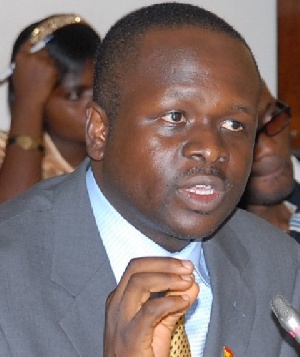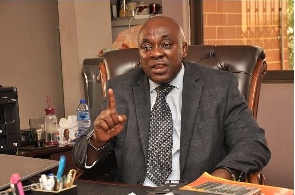 Dr. Edward Kofi Omane Boamah is Former Communications Minister under Mahama Administration
Dr. Edward Kofi Omane Boamah is Former Communications Minister under Mahama Administration
Former Communications Minister, Dr. Edward Kofi Omane Boamah has accused the Akufo-Addo government of 'degrading' secondary education in the country with the introduction of the Double Track System.
“Secondary level education in Ghana is being degraded with every passing decision of the President Akufo-Addo Government. And I’m worried about the socioeconomic implications thereof for current and prospective students, parents and indeed the entire nation" Dr. Boamah wrote on Facebook.
According to him, “yes, the 1992 constitution supports Free education but how free is the current “Free SHS”? It is neither free nor fair. Several well-meaning Ghanaians advised this Government while in opposition and in government about the (un)intended consequences of its wholesale “Free SHS” wild promise; yet the advice was treated with contempt. There’s no gain in seeking vindication when education in Ghana is being diluted and destroyed. …also think about the implications for tertiary education including universities few years from now”.
The Double Track System if implemented will be similar to the semester mode of learning applicable in the universities at the SHS level.
With this system, each track will be in school for specific days for each semester and go on vacation and come back for the second semester.
While the first track is in school, the second track will be on vacation and vice versa. The objectives of the Double-track School Calendar are to create room to accommodate increase in enrolment, reduce class sizes, increase contact hours and to increase the number of holidays.
The Double-track calendar is an intervention that allows schools to accommodate more students within the same facility and is often motivated by its potential to improve overcrowding as well as to save costs relative to new school construction in the short term. It is very popular in Australia, Costa Rica, Japan, some schools in the US and Kenya.
- Mahama is a threat to Free SHS – Miracles Aboagye
- Education Ministry honours Minister on 60th birthday
- Free SHS: Every sensible person will opt for a review – Prof. Kwabena Frimpong-Boateng
- I hate Free SHS more than I hate Satan - Blakk Rasta
- 3 Free SHS graduates emerge best WASSCE students in West Africa
- Read all related articles












